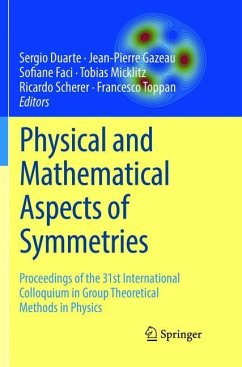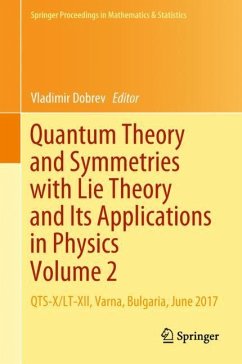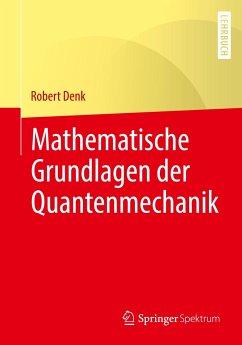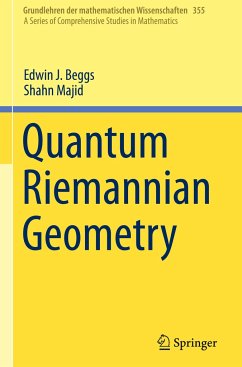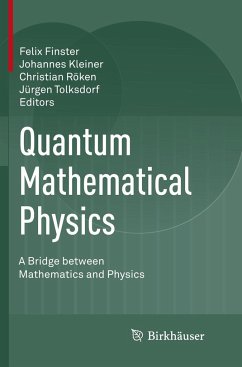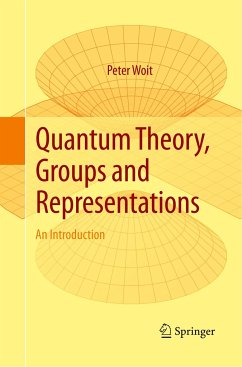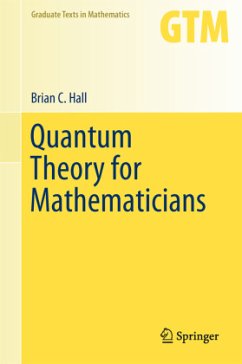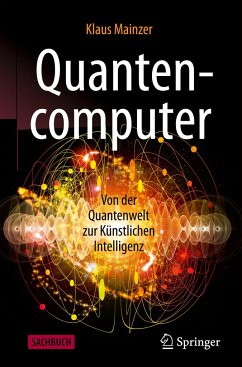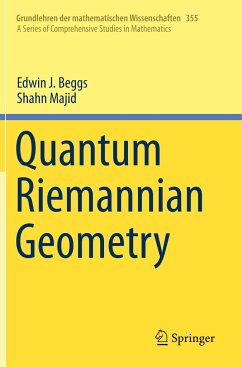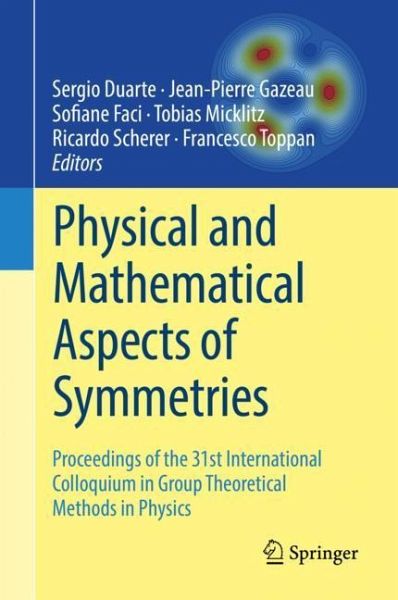
Physical and Mathematical Aspects of Symmetries
Proceedings of the 31st International Colloquium in Group Theoretical Methods in Physics
Herausgegeben: Duarte, Sergio; Gazeau, Jean-Pierre; Faci, Sofiane; Micklitz, Tobias; Scherer, Ricardo; Toppan, Francesco

PAYBACK Punkte
57 °P sammeln!
This proceedings records the 31st International Colloquium on Group Theoretical Methods in Physics ("Group 31"). Plenary-invited articles propose new approaches to the moduli spaces in gauge theories (V. Pestun, 2016 Weyl Prize Awardee), the phenomenology of neutrinos in non-commutative space-time, the use of Hardy spaces in quantum physics, contradictions in the use of statistical methods on complex systems, and alternative models of supersymmetry. This volume's survey articles broaden the colloquia's scope out into Majorana neutrino behavior, the dynamics of radiating charges, statistical pa...
This proceedings records the 31st International Colloquium on Group Theoretical Methods in Physics ("Group 31"). Plenary-invited articles propose new approaches to the moduli spaces in gauge theories (V. Pestun, 2016 Weyl Prize Awardee), the phenomenology of neutrinos in non-commutative space-time, the use of Hardy spaces in quantum physics, contradictions in the use of statistical methods on complex systems, and alternative models of supersymmetry. This volume's survey articles broaden the colloquia's scope out into Majorana neutrino behavior, the dynamics of radiating charges, statistical pattern recognition of amino acids, and a variety of applications of gauge theory, among others. This year's proceedings further honors Bertram Kostant (2016 Wigner Medalist), as well as S.T. Ali and L. Boyle, for their life-long contributions to the math and physics communities.
The aim of the ICGTMP is to provide a forum for physicists, mathematicians, and scientists of related disciplines who develop or apply methods in group theory to share their research. The 31st ICGTMP was held in Rio de Janeiro, Brazil, from June 19th to June 25th, 2016. This was the first time that a colloquium of the prestigious and traditional ICGTMP series (which started in 1972 in Marseille, France) took place in South America. (The history of the colloquia can be found at http://icgtmp.blogs.uva.es/)
The aim of the ICGTMP is to provide a forum for physicists, mathematicians, and scientists of related disciplines who develop or apply methods in group theory to share their research. The 31st ICGTMP was held in Rio de Janeiro, Brazil, from June 19th to June 25th, 2016. This was the first time that a colloquium of the prestigious and traditional ICGTMP series (which started in 1972 in Marseille, France) took place in South America. (The history of the colloquia can be found at http://icgtmp.blogs.uva.es/)





